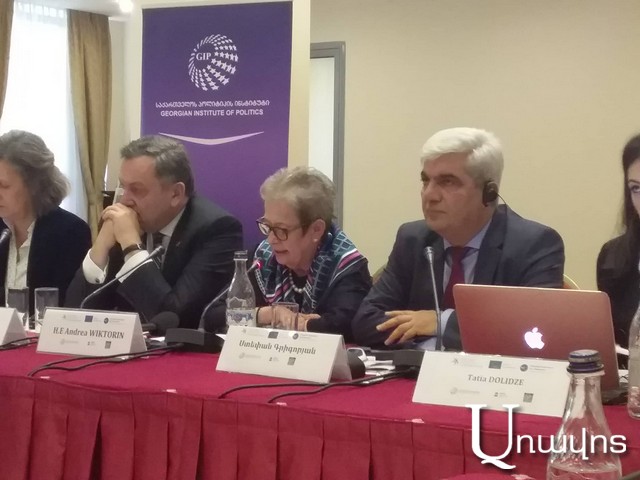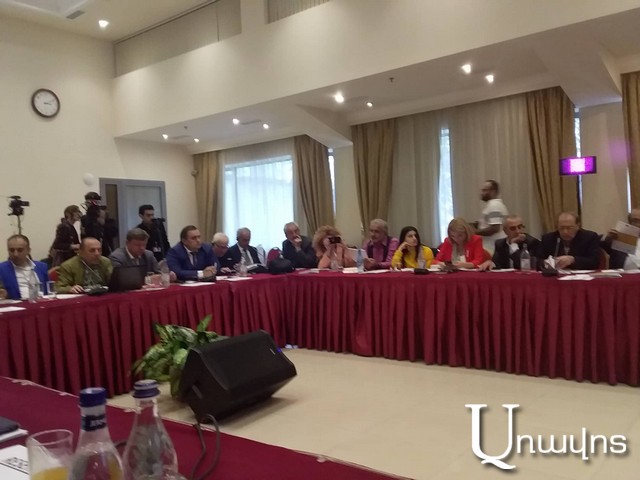The head of the EU delegation to Armenia and Ambassador Andrea Victorin is not certain that Armenian society fully understands what visa liberalization implies. The ambassador spoke about conversations she had with members of the Armenian community during the Analytical Center on Globalization and Regional Cooperation’s conference titled, “Effective Promotion of Visa Liberalization in Georgia, Moldova, and Armenia,” which is what caused her to reach that conclusion.
The ambassador said that she explained to these representatives, “Visa liberalization does not mean that you can go to European countries to work. It is important for everyone to understand that, otherwise you will be highly disappointed. This means that you can come to the EU for 90 days within a period of six months. This gives you many opportunities, and it also increases your sense of responsibility,” Victorin said.
Andrea Victorin had difficulty answering the constant questions on which state Armenia is in with the visa liberalization process. She said that the process took 6 years for Moldova, 5 years for Georgia, and 9 years for Ukraine. But she is unable to predict how many years it will take for Armenia.
Read also
The ambassador explained that the conditions for visa liberalization are not technical, but instead they demand important institutional changes. “We are prepared to support the Armenian government in creating true democratic institutions,” Victorin said, adding that the EU is impressed with the fact that Armenia was able to carry out a peaceful democratic revolution last year. And until discussions for the visa liberalization process begin, she encouraged Armenians, especially youth, because this process will provide them with many opportunities to move freely about the Schengen zone. She also encouraged the youth to make use of the opportunities provided by the Erasmus+ program more often because it is the biggest and most important exchange program in the EU.
Nelly Grigoryan

























































I don’t see much negative sentiment in EU Ambassador’s statement regarding Armenian people’s possibility of working in Europe. I mean, Armenia has pretty strong relations with the EU, numerous cooperation programs and joint projects, Erasmus+ opportunities for students… It’s somewhat obvious that Europe, with its constant flow of migrants and refugees, would not want citizens of other, more politically stable, states to settle on its territory.
As for visa liberalization, I think it will be a great event for Armenian people, as it allows them to travel freely across Europe for 90 days, a time period big enough to get to see various European countries.
The only thing I didn’t understand from Ms. Victorin’s speech is the moment she talks about a “sense of responsibility” that visa liberalization process increases among Armenian community. What exact responsibility type does she mean? That Armenians should get more responsible for their actions, once they are freed from visa obligations for three months?